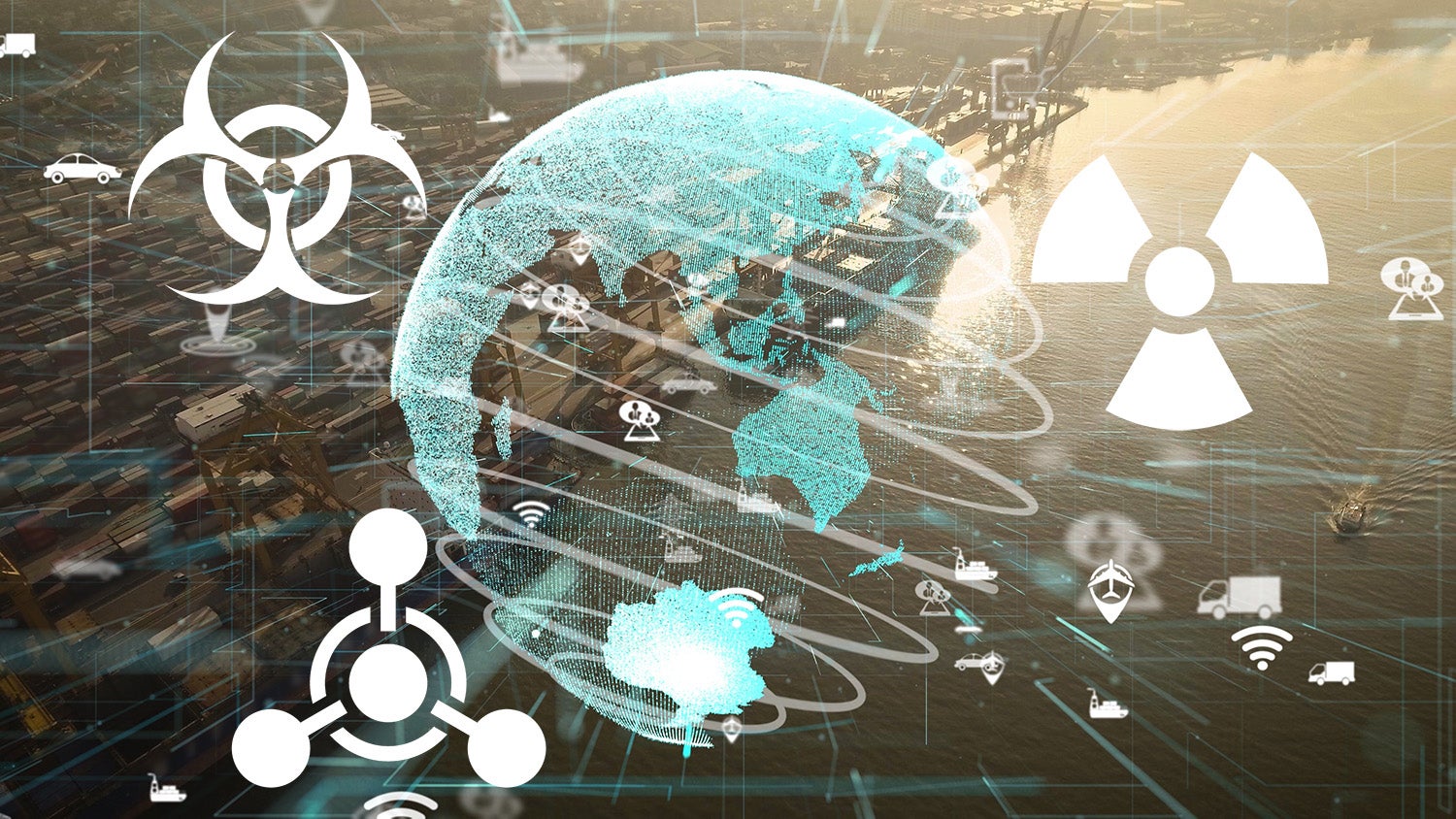Safeguarding a Dynamic World
Learn biosecurity excellence from expert practitioners
Master of Science Curriculum
Learn biosecurity excellence from expert practitioners
Master of Science Curriculum
Keeping humanity safe from biological threats requires constantly evolving science and technology. In the Biohazardous Threat Agents & Emerging Infectious Diseases program, you’ll learn from faculty on the front lines of biodefense in government departments and agencies, NGOs and industry, and academia and research institutions. Then you’ll apply knowledge of the latest threats, challenges and mitigation tools to practical projects in defense and security as well as clinical practices around the world.
Our Master of Science curriculum covers classic biological threats agents, global health security, emerging diseases, technologies, and chemical, biological, radiological and nuclear (CBRN) risk mitigation and security. We also offer a Concentration in Biomedical Science Policy & Advocacy as a valuable introduction to the world of science policy in Washington, D.C., and beyond. Graduates of our program are employed in both public health and security-focused positions across government, the private sector, and hospitals.
In addition to the primary master’s degree, our program also offers an Online Graduate Certificate, allowing government employees and other working professionals to build knowledge and skills on emerging threats across the CBRN security spheres.
M.S. Priority Application: May 15
Final Deadline: July 1
Our program focuses on professional as well as academic excellence. Graduates work as scientists and researchers, analysts and consultants, science writers, epidemiologists, and other roles. Others stand out in Ph.D., M.D., J.D. and MPH programs.
Where Do Our Alumni Go?